With over 25 years of expertise in legal and human rights topics, we decided to share our experience by expanding our activities to capacity building. Bridge Center was created to support institutions and individuals in enhancing their capacities and increasing their legal and human rights knowledge.
Target Groups
Front liners, Municipalities, Authorities, Organizations, Academic Institutions, Coalitions, Media Institutions
Empowering actors with human rights knowledge and innovative practices
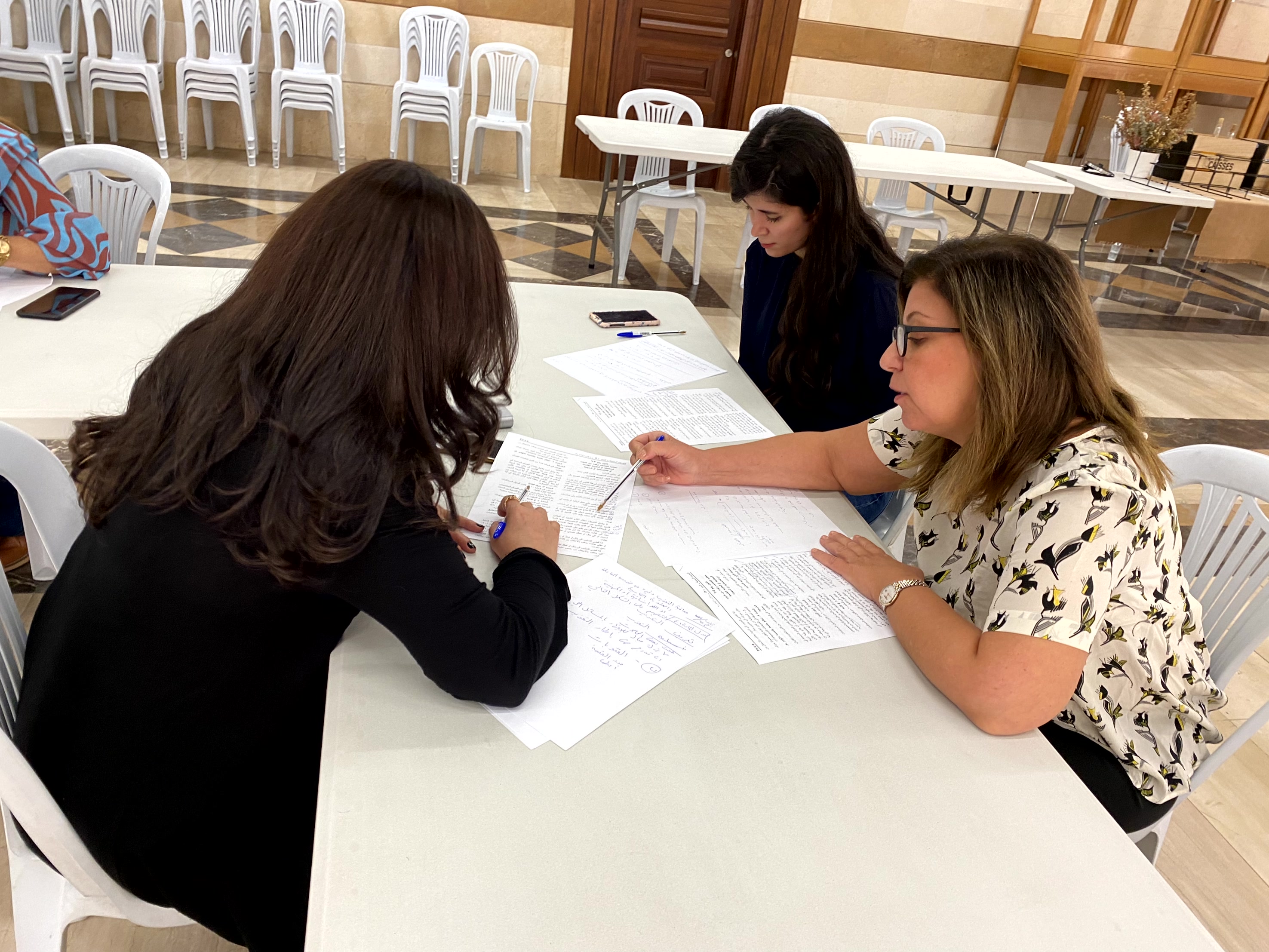
The Lebanese Center for Human Rights (CLDH) conducted an advanced 4-day training of trainers at the Tripoli Bar Association from October 17 to 20, 2022
The training aimed to provide attendees with the knowledge and skills needed for diverse topics, including juveniles’ law and courts in Lebanon, the prison situation, refugees’ legal situation, and the use of torture. Trainees had the opportunity to delve into laws, challenges, gaps, and practices related to the legal situation of juveniles, the main challenges faced by prisoners and prison personnel, the legal procedures for the provision of legal services to refugees, and the proper way to communicate with detainees to identify victims of torture.
Trainers included Me Hasna Abdul Reda (Head of CLDH's Legal Department), Me Widad El Abed, Me Issam Sbat, and Me Georges Najjar (Lawyer Consultants at CLDH), Judge Raja Abi Nader (Head of the Prisons' Directorate at the Ministry of Justice), Stephanie Haddad (Psychologist at CLDH), Nadine Moubarak (Project and Research Officer at CLDH), and Elissa El Hage (Social Worker at CLDH).
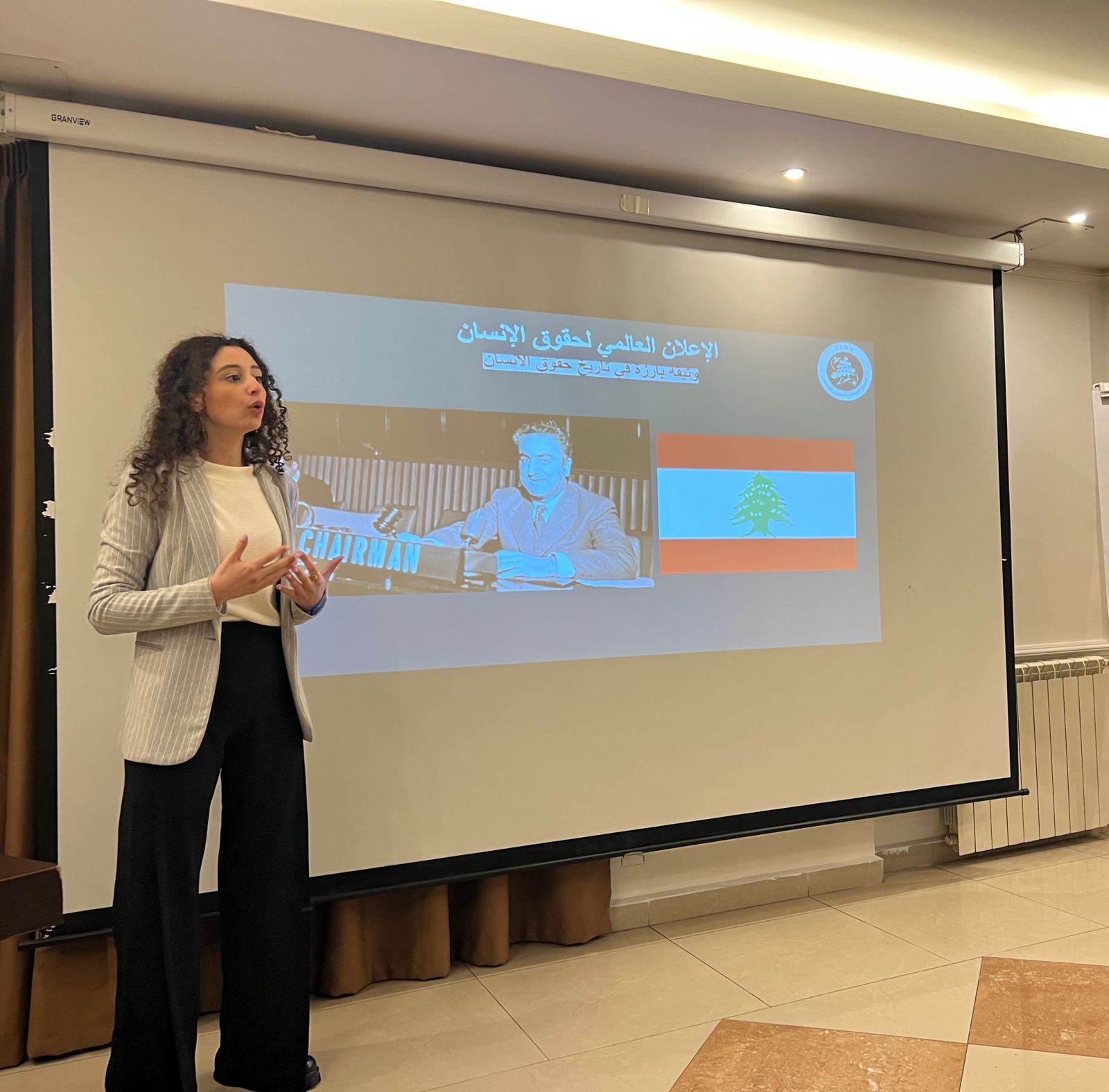
CLDH conducts a 5-module training in collaboration with the General Directorate of State Security (March – August, 2022): Module 1
CLDH conducted the first module of its training on interrogation techniques in collaboration with the Lebanese State Security from 15 to 17 March, 2022. The training which focused on the legal, psychological, and criminological aspects of interrogation was addressed to State Security members including detectives. The first module incorporated overviews of human rights concepts and principles presented by CLDH staff, domestic laws and international regulations with the former Head of the Tripoli Bar Association Me. Mohamad Mrad, the use of online tools for questioning with CLDH’s IT consultant, prisoners and detainees’ situation in Lebanon with Judge Raja Abi Nader, as well as case studies of interrogation scenarios.
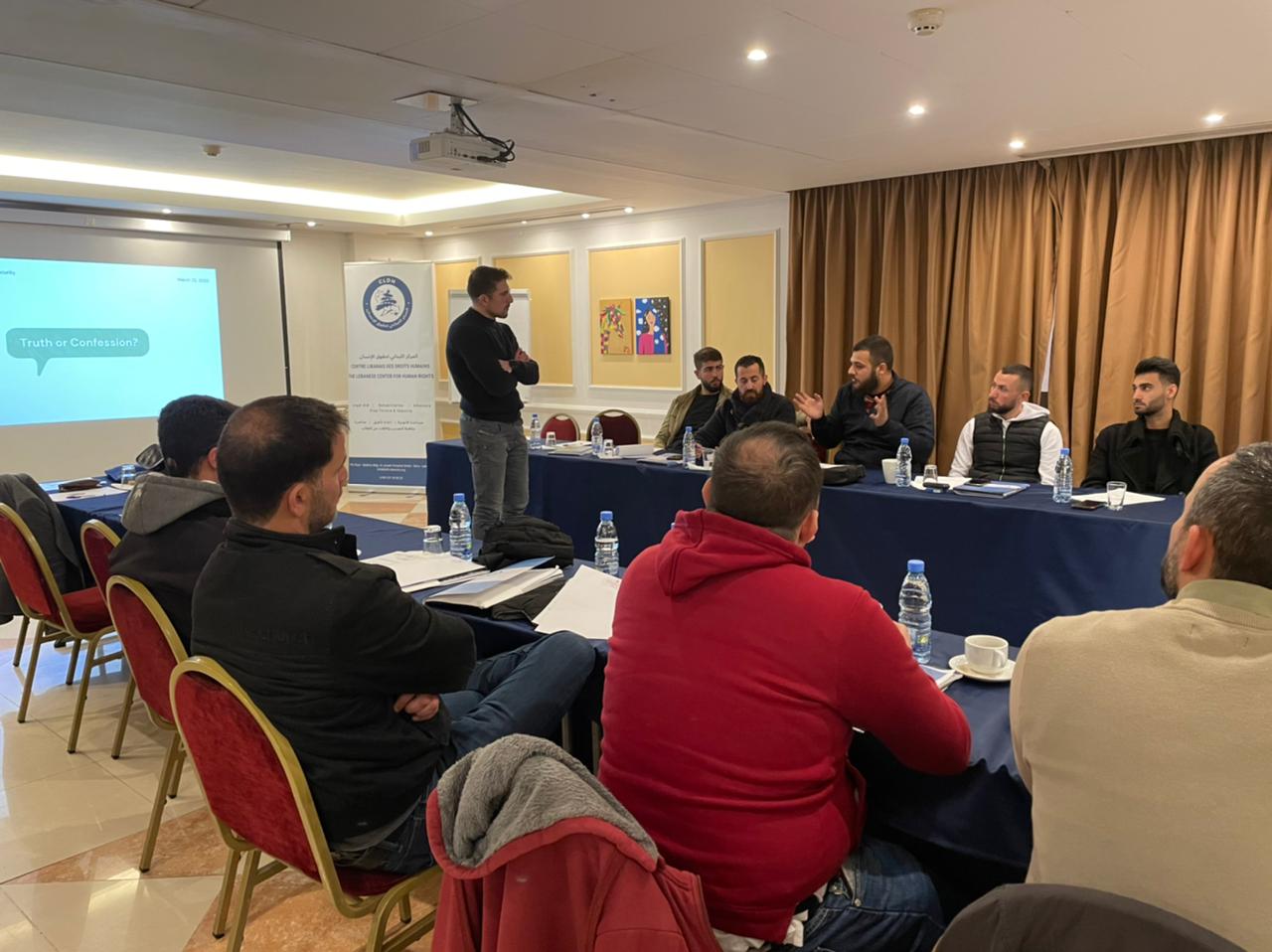
CLDH conducts a 5-module training in collaboration with the General Directorate of State Security (March – August, 2022): Module 2
The module which took place on 22, 23, 29, and 30 March 2022 with Captain Oliver Homsi from State Security, focused on a behavioral and psychological approach to investigations.
During these four days, the training included behavioral analysis and communication channels, focusing on the importance of extracting the truth rather than confessions during interrogations.
More specifically, the training focused on body language, facial expressions, physiology, as well as interaction styles as communication channels and analysis tools when dealing with suspects.
The module ended with a general overview of the accuracy of behavioral analysis and professional detachment.
The second module is a transition to the third one which will tackle psychology and mindfulness with the same State Security trainees to build new skills and behaviors using a different perspective.
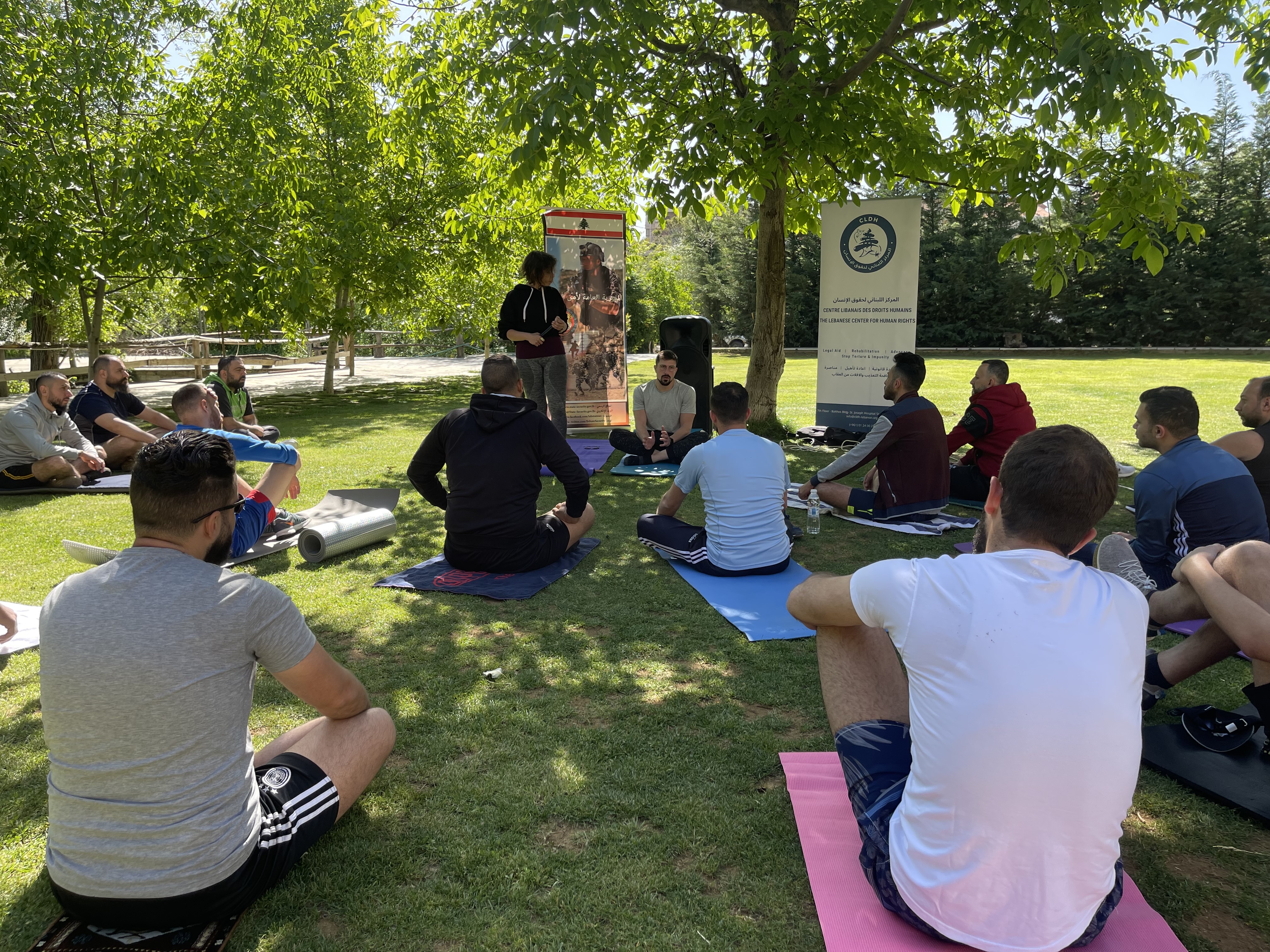
CLDH conducts a 5-module training in collaboration with the General Directorate of State Security (March – August, 2022): Module 3
Over the course of 2 days (12 – 13 May), the third module of the training included various psychological and intellectual methods: calming the mind through the body, physiological sigh linked to the visualization of a bad memory, triggers and focus, gratitude meditation, support groups with psychologist Stephanie Haddad and security captain Oliver Homsy.
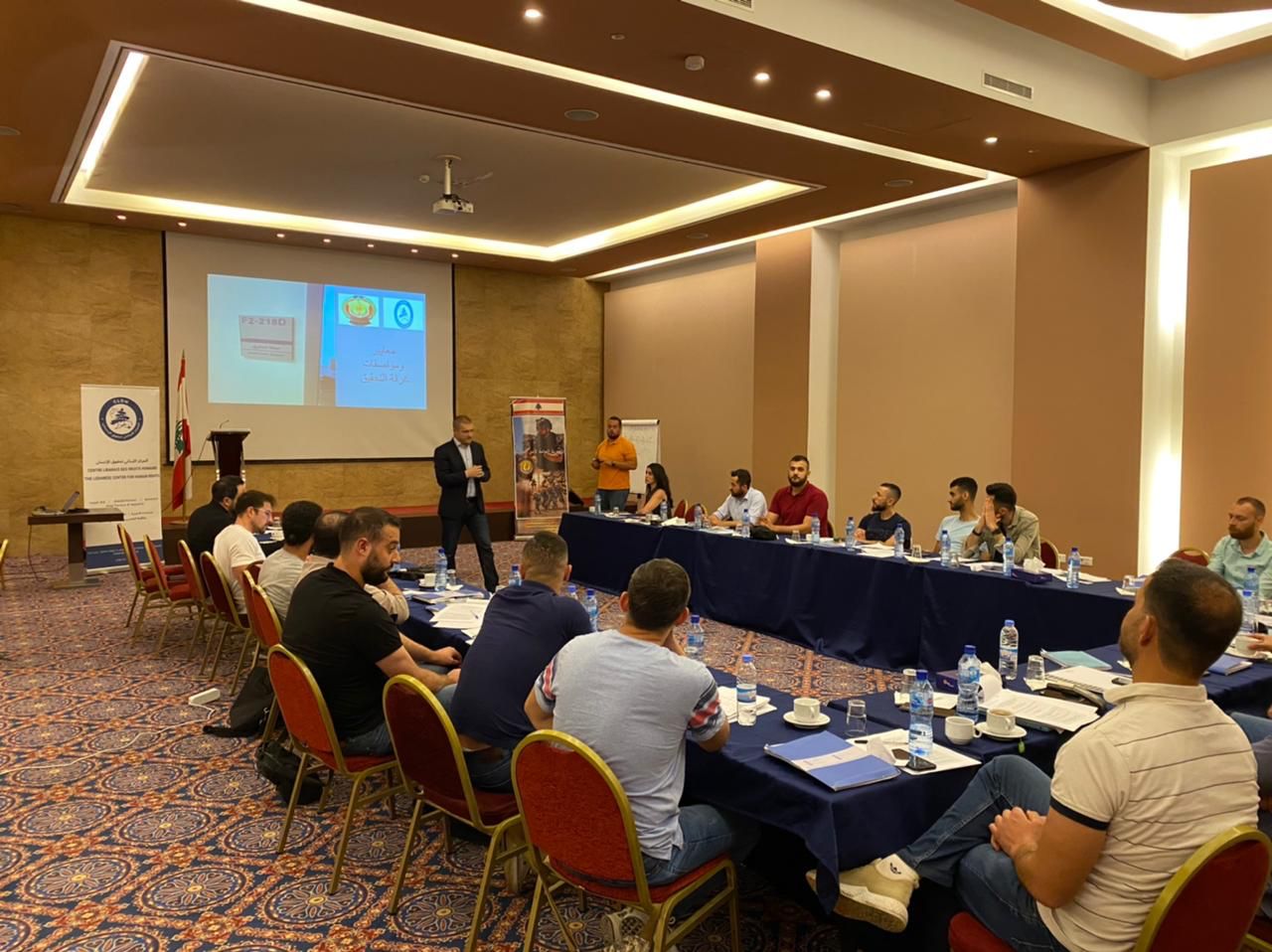
CLDH conducts a 5-module training in collaboration with the General Directorate of State Security (March – August, 2022): Module 4
The fourth module which took place on June 7, 8, and 9 tackled investigative interviewing, interrogation room criteria, introduction to forensics, criminology, prejudgment, and gender sensitivity.
The trainers included Judge Raja Abi Nader (Head of Prisons Directorate at the Ministry of Justice), Dr Cindy Mansour (Forensics Expert), Captain Oliver Homsy (State Security), Me Issam Sbat (Attorney at law, Volunteer at CLDH), Fadel Fakih (Executive Director of CLDH), Josiane Noun (Programs Manager at CLDH), Nadine Moubarak (Criminologist/ Project and Research Officer, CLDH), and Chrystine Mhanna (Communications and Advocacy Coordinator, CLDH).
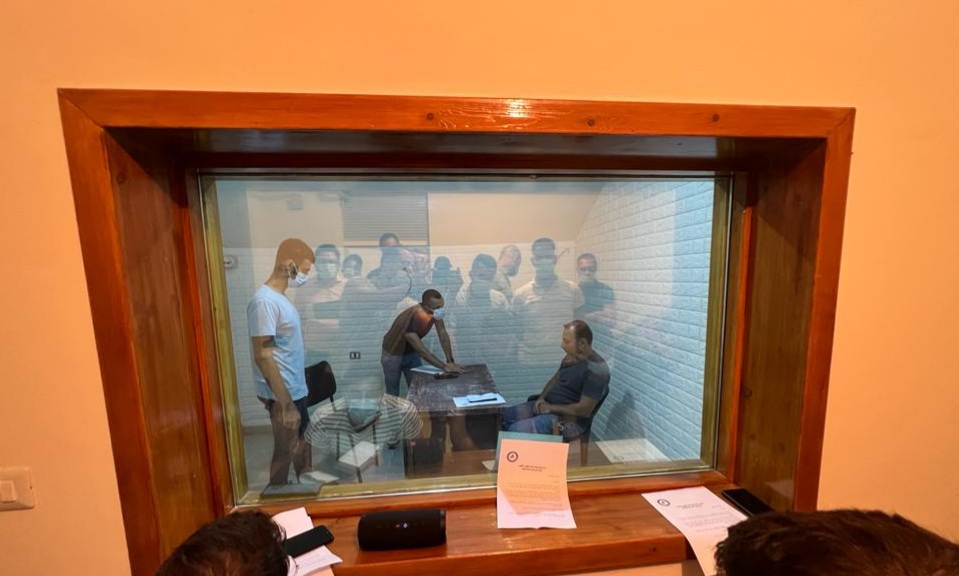
CLDH conducts a 5-module training in collaboration with the General Directorate of State Security (March – August, 2022): Module 5
The final module of the training, which took place on August 10 and 11, tackled diverse topics, including accountability measures that should be taken inside the State Security Directorate and the role of National Human Rights Institute and National Preventive Mechanism in prohibiting torture. It also included role play exercises inside the model interrogation room. The trainers included Captain Oliver Homsy (State Security), Fadel Fakih (Executive Director of CLDH), and Josiane Noun (Programs Manager at CLDH) in the presence of Commandant Imad Salloum (head of Human Rights Division) and Captain Majd Wehbe (Head of the Military Security Division - Weaponry).
The Lebanese Center for Human Rights established a model interrogation room at the State Security Directorate in Ramlet El Bayda during its fifth and final module of the state security training in collaboration with the Directorate General of State Security. The room, which is still in progress, is designed to uphold international standards, prevent torture, and ensure that all evidence is obtained legally while maintaining the safety and security of all parties involved.
The goal behind this initiative is to encourage the institution of similar interrogation rooms that protect human rights. The model is being equipped with strategically installed cameras and microphones that are connected to a computer in an adjacent room. Moreover, the room contains a one-way glass window that allows outside officers to monitor the interrogations. Other measures that will be taken into consideration include the size of the room, its location, as well as the type of walls, doors, and furniture.

